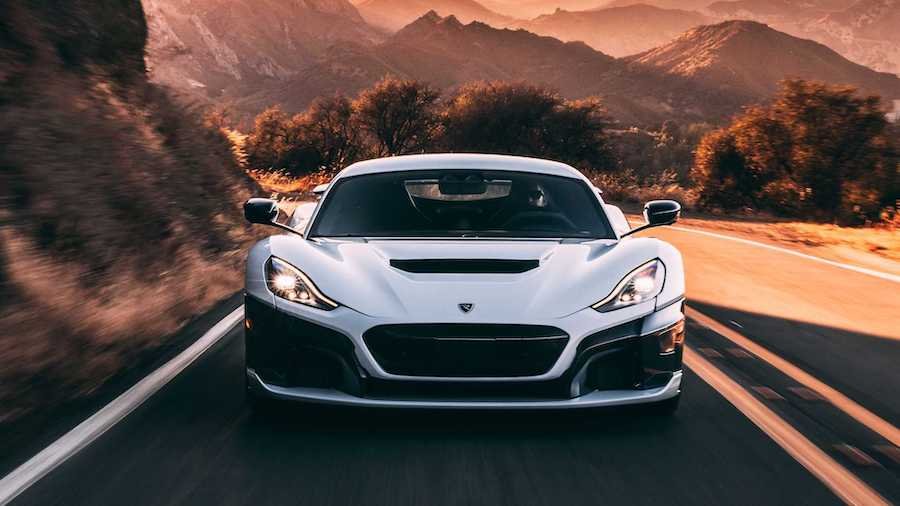Rimac hasn't sold all 150 examples of its Nevera electric hypercar, and any replacement is unlikely to be an EV.
The Nevera was revealed in 2021 as an 1888bhp evolution of the C_Two concept, with deliveries beginning later that year and a build run of 150 units planned.
However, the Croatian firm still hasn't sold that number of cars, which CEO Mate Rimac has attributed to a decline in demand for ultra-high-end EVs.
"We started to develop [the] Nevera in 2016/2017, when electric was cool," he told the Financial Times Future of the Car conference in London.
Since then, he said, the market environment has evolved, with tastes changing as legislators and mainstream car makers seek to make electric cars the mainstream.
"The regulators and some OEMs [manufacturers] push it so much that the narrative has changed. They're pushing stuff on us that we don't want, so people get a little bit repulsed by it, this whole forced application.
"I'm always against it. I think everything has to be based on merit. So the product has to be better."
The Nevera was developed partly as a showcase of what could be achieved with motors and batteries in an era when the technology was still in its nascence and had yet to be fully embraced and rolled out by mainstream manufacturers.
"At that time," Rimac said, "we were thinking electric cars would be cool in a few years - the best cars, or with the highest performance and so on.
"We notice [now] that as electrification is becoming mainstream, people at the top end of the sector want to differentiate themselves."
This manifests chiefly in a desire for analogue technology and ICE drivetrains, he suggested, using the analogy that high-end analogue watches command several times as much money as more capable and popular smartwatches.
"An Apple Watch can do everything better. It can do 1000 more things, it's a lot more precise, it can measure your heart rate. But nobody would pay $200,000 for an Apple Watch.
"We do have a market for the Nevera, and it is the best-sold electric hypercar. We have already delivered more than 50 cars out of a total of 150."
He added that "if we did an electric Bugatti, we would have sold an amount of them, for sure, because of the brand", but that amount would have been "nowhere near" the estimated amount it will sell of the V16-engined Chiron successor.
Rimac said he doesn't see demand returning for electric hypercars because, while in the mainstream car segments there will be little prevailing loyalty for individual brands and powertrain technologies, the high-end car segments demand a high level of differentiation and "analogue" appeal.
"I think there is a niche to do things you cannot do with a combustion engine," Rimac said. "It's not about being electric; it's about doing things that other cars can't do and giving a unique experience."
Rimac recently revealed to Autocar that his firm was investigating whether its next car could use groundbreaking nanotube technology, wherein "chemically different" liquid fuels can be used to generate electricity to power motors, thereby doing away with the conventional battery arrangement.
"Rimac isn’t exclusively electric; it’s doing whatever is most exciting at the time,” he said, citing LPG, hydrogen and even diesel as potential fuels that could be used in this set-up.
Meanwhile, he said he sees "no reason" for Bugatti, which Rimac acquired from the Volkswagen Group in 2021, to stop selling ICE cars in the near future.
"We have developed a new V16 engine, and we want to use that engine for a while, and maybe some other engines, and I can't see a reason why it would be impossible."
Related News

